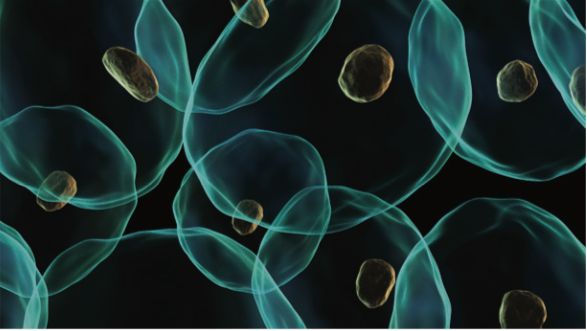Toxicity Testing Stage Two Winners Announced

Scientists from EPA, NCATS, and NIEHS/NTP are using high speed, automated screening technologies called high-throughput screening (HTS) assays to rapidly test whether some of the thousands of chemicals in use may affect human health. However, since current HTS assays do not fully incorporate chemical metabolism, they may miss chemicals that are metabolized to a more toxic form.
To help capture that information, in January 2016, EPA launched the Transform Toxicity Testing Challenge along with their partners, the National Institutes of Health, National Center for Advancing Translational Sciences, and the National Toxicology Program housed within the National Institute for Environmental Health Science.
The Transform Toxicity Challenge asked teams of scientists to develop techniques to retrofit existing HTS assays to incorporate processes that reflect how chemicals are broken down and metabolized by the body. After selecting semi-finalists in May 2017, the EPA and its partners have selected the Transform Toxicity Challenge Stage Two winners.
Stage two winners have produced practical designs that bring us one step closer to turning existing, commonly used in vitro high-throughput chemical screening assays into tests which will evaluate both parent chemical and metabolite effects in the assay responses. Each Stage Two winner will receive a $100,000 prize.
The Stage Two winners are:
- Dr. Brian Johnson, Onexio Biosystems LLC created MICRO MT (Metabolism Integrated Cell RepOrter MicroTiter plate), a simple solution to the Transforming Toxicity Testing Challenge. They utilized the natural metabolic activity of human liver cell lines to mimic the way the body metabolizes chemicals in the liver. This is accomplished by their patent pending microtiter cell culture plates that enable high-throughput co-culture of liver cells with standard reporter assays. Chemical metabolites generated in liver cell cultures diffuse through microchannels into adjacent wells that contain the reporter assay. The MICRO MT format is technically simple, requires no additional equipment to operate and is amenable to the high volume and high throughput needs of 21st century toxicology.
- Dr. Moo-Yeal Lee, Cleveland State University and Mr. Rayton Gerald of 3D MicroArray, Inc. collaborated in Stage in I and II of the Transform Tox Testing Challenge. Dr. Lee has been developing a “microarray 3D bioprinting” technology, which is a robotic, high-precision, cell printing technology manifested on a 384-pillar plate with sidewalls (384PillarPlate®). In an effort to generate predictive toxicity/efficacy data and to serve the global in vitro cell-based testing market, Dr. Lee and his group at Cleveland State has focused on developing the 384PillarPlate®, bioprinted human tissues on the 384PillarPlate® (TissuePlate®), and related toxicity assessment assays. The technology is best suited for creating miniaturized multicellular tissue structures and multiplexed cell-based assays for drug discovery. The 384PillarPlate® platform is a robust and flexible system for high-throughput screening of compound libraries and enables retrofitting of current cell-based toxicity tests to provide metabolic competence.
- Dr. Lawrence Vernetti, University of Pittsburgh Drug Discovery Institute used cryopreserved droplets of encapsulated, metabolically competent primary human hepatocytes in a delivery system that can be thawed as needed for insertion into the media of an ongoing assay. An added advantage to this format is offering researchers the flexibility to customize the delivery system with their own metabolically active cells using equipment found in most high throughput screening laboratories.
- Dr. Hongbing Wang, University of Maryland School of Pharmacy developed a human primary hepatocyte (HPH)-target cell co-culture model by utilizing a newly designed inverted co-culture system (Patent Pending) that can be scaled up to a high-throughput (HTS) format, allowing cell-based screening assays to run in an environment that produces physiologically relevant metabolites. Properly cultured HPH are well-recognized as one of the most relevant and practical models that maintain capacity for drug metabolism by a broad spectrum of drug-metabolizing enzymes. This new co-culture model provides a simple solution that can retrofit existing HTS assays to determine if parent compounds and their physiologically-relevant metabolites interact with the target of interest and offers improved assessment of chemical toxicities.
- Dr. Albert Li, In Vitro ADMET Laboratories LLC developed a novel exogenous metabolic system, MetMax™ Human Hepatocytes (MMHH; patent pending), as a convenient experimental reagent to provide hepatic metabolism to in vitro toxicity assays, including cytotoxicity, and genotoxicity. MMHH are cryopreserved permeabilized human hepatocytes supplemented with phase I and II drug metabolizing enzyme cofactors. MMHH has drug metabolizing enzyme activities similar to conventional cryopreserved human hepatocytes, but with the convenience of cell-free fractions such as storage in -80 deg. and direct thaw-and-use without centrifugation or microscopic determination of viability and cell concentration. After thawing, MMHH can be directly added to the wells of the target cells as an exogenous metabolic activation system for the evaluation of toxicants where metabolism can greatly affect their toxic potential. MMHH were compatible with all high throughput screening multi-well systems, including 24, 48, 96-, 384-, and 1536-well plates. The permeabilized membranes of MMHH allowed ready interaction of hepatic drug metabolizing enzymes with the test compounds as well as ready diffusion of the resulting hepatic metabolites from the hepatocytes to interact with the target cells. Proof-of-concept studies performed in HEK 293 cells, a cell type that is not competent in xenobiotic metabolism, with model protoxicants showed that their cytotoxicity in HEK 293 cells was significantly enhanced by the presence of MMHH, and that the metabolic enhancement could be abolished by heat-inactivation of MMHH. MetMax™ Human Hepatocytes represent a promising experimental system to provide exogenous hepatic metabolism to in vitro toxicity assays that do not possess metabolic capacity.
